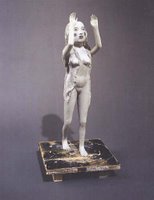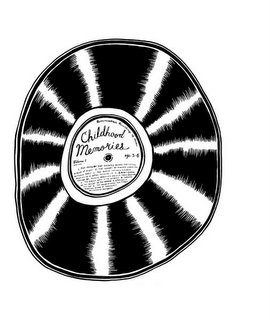Saturday, December 31, 2005
Thursday, December 29, 2005
Tuesday, December 27, 2005
 Memorial service at Takupa sport stadium in Pan-Nga province.
Memorial service at Takupa sport stadium in Pan-Nga province.As part of ceremonies and remembrances around the world noting the anniversary of last year's Indian Ocean tsunami, 5,000 floating paper lanterns fill the sky Monday over the Andaman Sea off Khao Lak in sounthwestern Thailand. On December 26, 2004, southern Asia's most powerful earthquake in 40 years tore open the seabed off the coast of the Indonesian island of Sumatra, displacing billions of tons of water and sending massive waves roaring across the Indian Ocean as far away as East Africa. In the tsunami's ensuing devastation, an estimated 223,000 people died in a dozen nations in the region.
ONE YEAR LATER
Survivors pay tribute to tsunami dead
Associated Press
Saturday, December 24, 2005
Monday, December 19, 2005
Saturday, December 17, 2005
Wednesday, December 14, 2005
Watch the travel log:
Arnold Schwarzenegger: Carnival in Rio
Tuesday, December 13, 2005
Justice Thurgood Marshall, 1976
In Furman, I concluded that the death penalty is constitutionally invalid for two reasons. First, the death penalty is excessive. Id. at 331-332; 342-359. And second, the American people, fully informed as to the purposes of the death penalty and its liabilities, would, in my view, reject it as morally unacceptable. Id. at 360-369.
Since the decision in Furman, the legislatures of 35 States have enacted new statutes authorizing the imposition of the death sentence for certain crimes, and Congress has enacted a law providing the death penalty for air piracy resulting in death. 49 U.S.C. Secs. 1472(i), (n) (1970 ed., Supp. IV). I would be less than candid if I did not acknowledge that these developments have a significant bearing on a realistic assessment of the moral acceptability of the death penalty to the American people. But if the constitutionality of the death penalty turns, as I have urged, on the opinion of an informed citizenry, then even the enactment of new death statutes cannot be viewed as conclusive. In Furman, I observed that the American people are largely unaware of the information critical to a judgment on the morality of the death penalty, and concluded that, if they were better informed, they would consider it shocking, unjust, and unacceptable. 408 U.S. at 360-369. A recent study, conducted after the enactment of the post-Furman statutes, has confirmed that the American people know little about the death penalty, and that the opinions of an informed public would differ significantly from those of a public unaware of the consequences and effects of the death penalty.FN1
Even assuming, however, that the post-Furman enactment of statutes authorizing the death penalty renders the prediction of the views of an informed citizenry an uncertain basis for a constitutional decision, the enactment of those statutes has no bearing whatsoever on the conclusion that the death penalty is unconstitutional because it is excessive. An excessive penalty is invalid under the Cruel and Unusual Punishments Clause "even though popular sentiment may favor" it. Id. at 331; ante at 173, 182-183 (opinion of STEWART, POWELL, and STEVENS, JJ.); Roberts v. Louisiana, post at 353-354 (WHITE, J., dissenting). The inquiry here, then, is simply whether the death penalty is necessary to accomplish the legitimate legislative purposes in punishment, or whether a less severe penalty -- life imprisonment -- would do as well. Furman, supra at 342 (MARSHALL, J., concurring).
Argued March 31, 1976 - Decided July 2, 1976
CERTIORARI TO THE SUPREME COURT OF GEORGIA
Former Supreme Court Justice William Brennan
www.deathpenalty.org
www.deathpenaltyinfo.org
Executions by State
Monday, December 12, 2005
for the first time. It should be fun, let's just hope it turns out edible.
Years ago I had an exhibit up at SFAI that included my version of a Sta. Lucia painting. When my friend Rita who is from Sweden saw it she was kind enough to make some Lucia Bread and bring it to the art reception. Unfortunately I did not get to taste it because it was gone by the time she walked across the gallery. Then a few years later she and I were in the grad program at CCA(C) and we intentionally planned an exhibit of her work and my work during the week of Sta. Lucia Day. Again, Rita made the beautiful Lucia bread sculpted into various shapes, but once again I did not get a bite!!! So tomorrow morning I will have my first bite of Lucia bread after missing my chance to taste some made by an expert.
Lucia Bread
11 Tablespoon. butter
6 cups flour
2/3 cups sugar
3 package dry yeast or 1 2/3 oz. fresh yeast
2 cups milk
1 gr. saffron
1/2 teaspoon salt
1/2 cup raisins
1 egg
Grind saffron with a little sugar in a mortar and pestle. Melt butter, add milk and heat to 130° (too hot to keep your finger in), add salt and saffron. Mix dry ingredients and gradually add the hot milk mixture. Knead the dough. Place in a greased bowl, cover with a damp cloth and let rise 30 minutes. Knead again. Divide the dough into 30 parts. Roll into traditional shapes, add raisin decoration and place on a greased sheet. Let rise 30 minutes. Brush with beaten egg. Bake 5 minutes at 450°.
Sunday, December 11, 2005



KIKI SMITH at SFMOMA
Went to the SFMOMA to see the Kiki Smith exhibit for the 2nd time. The 1st time I went to see the Chuck Close exhibt with my dad not knowing Kiki Smith was showing; 2nd time went to see Kiki Smith with Geri; and before it closes I will go a 3rd time with Nick to see both exhibits. She has an amazing array of work. There is a 15 minute Art 21 segment available to view on the 2nd floor as well as at a computer terminal at the entry area of her exhibit. The video is worth watching. I like how she said art making is 90% work rather than solely inspiration. Also she talks about death masks. As a child there was a death mask in her home of her grandmother who died 20 years before she was born. When her father died she made a death mask as well as molds of his hands and when her sister died she made a death mask of her...she has three generations of death masks.
Saturday, December 10, 2005

Rest In Peace Richard.
Richard audio clips:
Super Nigger
The Excorcist
Monkeys
Ali
Southern Hospitality
Friday, December 09, 2005
THE FESTIVAL OF SANTA LUCIA
The festival of Santa Lucia begins before dawn, on the thirteenth of December, which under the old Julian calendar (used in Sweden before 1753) was Christmas Day and the longest night of the year. No one knows how long ago the tradition began, but it was so far back that the festival of Santa Lucia was marked by a notch on the primitive "primstav" (calendar stick), the precursor of the calendar. It later became customary in western Sweden to finish the threshing by Lucia Day so as to begin the cooking and baking for the long Christmas festivities. From its beginnings in Värmland, the customs in honor of Santa Lucia have spread throughout Sweden, and more recently to the rest of Scandinavia. Today, the festival is celebrated in schools, hospitals, businesses, and towns; each of which has its own Lucia Bride and festivities to mark the beginning of Christmas. Santa Lucia Day is also an international holiday, celebrated not only in Scandinavia, but also in Italy and France in the rites of the church.
However, the origins of this tradition are not in Scandinavia, but in Syracuse on the island of Sicily around 304 A.D. According to the Sicilian legend, Lucia's mother, a wealthy lady, had been miraculously cured of an illness at the sepulcher of Saint Agatha in Catania. Lucia persuaded her mother in thankfulness to distribute her wealth to the poor. So, by candlelight, the mother and daughter went about the city secretly ministering to the poor of Syracuse. Unfortunately, this was during the last great persecution of Christians in the reign of the Emperor Diocletian. The pagan young man, to whom Lucia was engaged, took a dim view of this distributing of her dowry, and denounced her to the prefect, Pascasius, who ordered that she be seized and tortured. Miraculously, when neither boiling oil nor burning pitch had the power to hurt her, she was blinded and slain with a sword. Her martyrdom is recorded in ancient sources and in an inscription found in Syracuse.
How or when this legend and tradition came to Värmland, Sweden, no one knows. With the coming of Christianity to Sweden shortly after 1000 A.D., missionaries and priests may have told the story to inspire new converts. Another possibility is that sailors from Sweden may have been captivated by the popular candlelight festival of Santa Lucia in Italy and brought the tradition back with them. A newer theory, requiring more research is that St. Birgitta (1303-1373), during her stay in Rome (1349-1373) in her effort to get papal approval of the Bridgittine Order for women, probably wrote home to Sweden telling of the Lucia legend which was widely known in Italy. As Lucia Day comes at the darkest time of year, the candies of the ministering Santa Lucia portend and witness to the True Light. In honor of her martyrdom, It has long been the custom to donate money on Lucia Day to institutions working for the blind.
Thursday, December 08, 2005
Tuesday, December 06, 2005
Monday, December 05, 2005


Came home to a nice surprise. Nick got me 2 books on Bosch since I have been eager to learn more about him. I recently found a used Horizon book from the 60's with an article about Bosch and a used Prado book, but did not have any books solely about Bosch. These should be a good start at studying his work more closely. Thank you Nick.
Thursday, December 01, 2005
Vast and grey, the sky
is a simulacrum
to all but him whose days
are vast and grey and—
In the tall, dried grasses
a goat stirs
with nozzle searching the ground.
My head is in the air
but who am I . . . ?
—and my heart stops amazed
at the thought of love
vast and grey
yearning silently over me.































